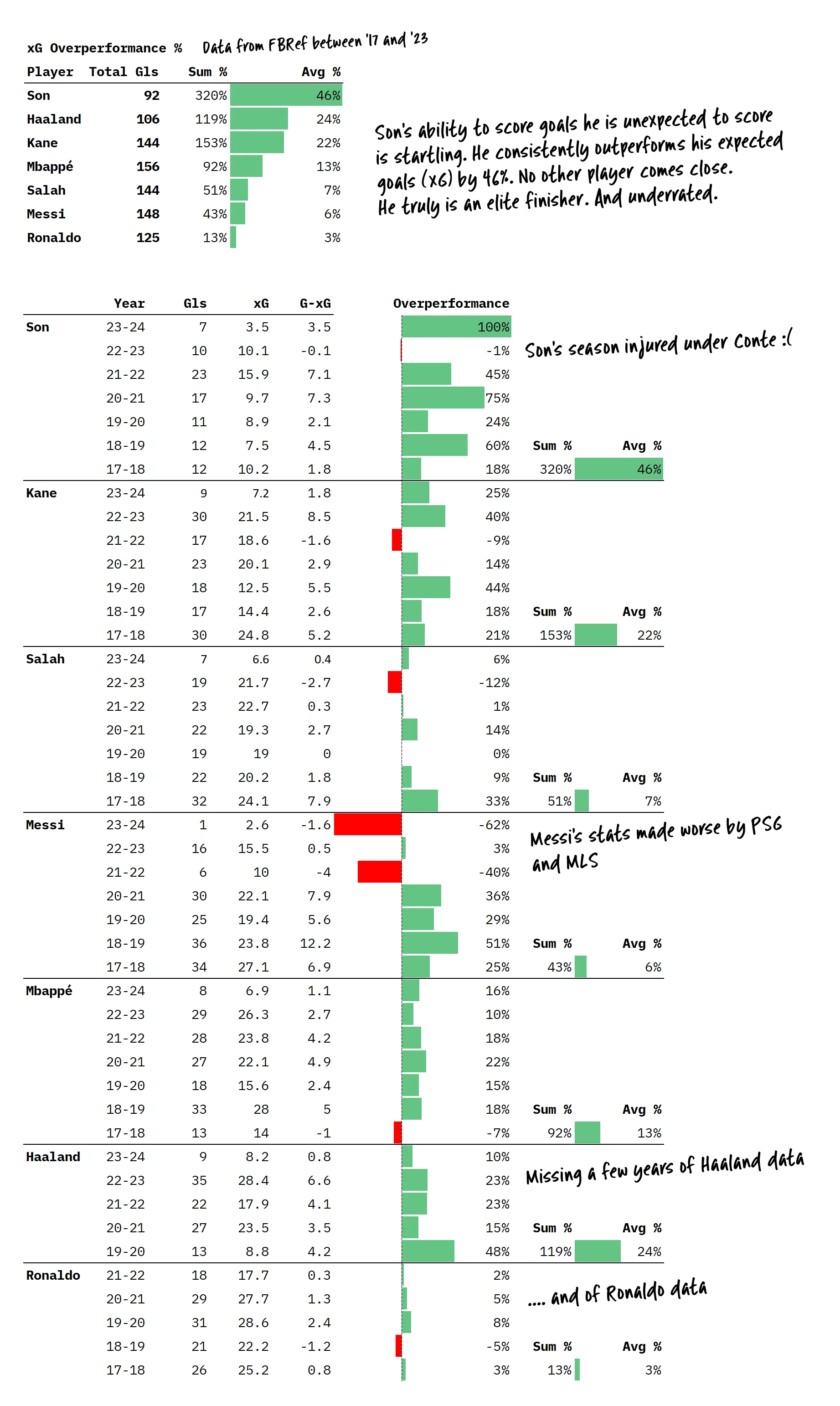this post was submitted on 25 Oct 2023
13 points (74.1% liked)
Football (Soccer fútbol fußball 足球 )
5677 readers
7 users here now
Here for discussion of all things association football/soccer!
Rules
- No bigotry - including racism, sexism, ableism, homophobia, transphobia, or xenophobia.
- Be respectful, especially when disagreeing. Everyone should feel welcome here.
- No porn.
- No Ads / Spamming.
- No piracy
Other Football/Soccer Related Communities
- Eredivisie
- MLS
- Football Manager
- Ajax FC
- Arsenal FC
- Chelsea FC
- Liverpool FC
- Tottenham Hotspur FC
- US National Woman’s Soccer League
founded 1 year ago
MODERATORS
you are viewing a single comment's thread
view the rest of the comments
view the rest of the comments

Isn't a player's xG a product of team performance and individual performance?
Not saying this just for the memes, but surely spurs players take an xG hit for playing for Tottenham simply because the team itself has not looked particularly threatening for the past few seasons.
I'm afraid I don't think it works like that, although the specifics of xG algorithms that stats companies use are generally closely guarded secrets, they often talk about how it works in loose terms.
xG is usually produced by a huge predictive model which takes in a combo basically every possible data point you can imagine to do with a football match.
Opta talks about their model being fed by things like historic data for the ball position, limb positions, the quality of passing building up to a shot (some models talk about every pass from when the ball was out of play), the quality of the keeper in front and all sorts of other stuff they don't let on about.
Given all that I'm not sure it's possible to meaningfully normalise a player's xG because it's a product of other players on a pitch. So I think it's fair to conclude that a poorly performing team will very likely be negatively impacting an individual's xG.
No, it takes into account the events and circumstances of the play, not the individual skill of the players involved. At least, that's how Opta's xG model works.
More here: https://fbref.com/en/expected-goals-model-explained/
Oh I think I see what you're saying: a poor team will create poorer chances in general, leading to lower xG shots. There's truth in that, but is it the case at Spurs? The club has had an average league position of 4.6 over the last 10 seasons, which suggests it has had above average players, regardless of (lack of) trophies, so you'd have thought, on balance, those players would in general be capable of "good play" resulting in high xG chances. All that is besides the point, though. This analysis is about how Son has an uncanny ability to score low xG chances.
Handy hint: you can eyeball low xG goals by looking at a player's Goal Log on FBref then sorting on the xG column, low to high. Always fun to check out the really low ones. The PSxG stat (called xGOT on Sofascore) gives us an indication of how savable the shot is - the closer to 1, the less likely to save. It's a useful indicator of the "quality" of the shot to go along with the "difficulty" represented by xG.
E.g. https://fbref.com/en/players/92e7e919/goallogs/dom_lg/Son-Heung-min-Goal-Log